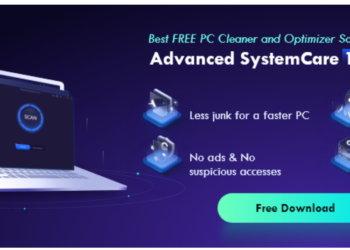Long ago, tech experts warned us that someday computers would run everything. While computers might not run everything, you’d be hard-pressed to find a sector of business that doesn’t rely on advanced technology to some degree.
Data science has recently soared to the forefront of the tech and business worlds, as big data enables business users to gain valuable insights into business processes and customer data.
Furthermore, more and more companies rely on robust enterprise software application infrastructures to enhance and streamline workflows and collect and analyze data. So, maybe computers have taken over.
One of the challenges of using a lot of different systems to run a single business is it can cause a log jam of software applications.
Is there such a thing as too much of a good thing? Well, there can be if you don’t have the infrastructure to support that good thing.
If you have too many software applications and no integration platform, you’re perpetuating a nightmare situation for your IT department. Continue reading to learn some use cases for cloud integration platforms.
What Is iPaaS?
If you’re not a data scientist, you might be wondering what an iPaaS system is. An iPaaS platform is a cloud integration tool that standardizes all of a company’s cloud applications, making it easier for the apps to communicate and share data and even functions.
Integration platforms make it easier to move transactional and master data across disparate platforms, significantly increasing the efficiency of application and data integration.
In the following sections, we’l l discuss some common iPaaS examples and how you can use an integration platform to enhance your company’s business operations.
One of the most common use cases for iPaaS systems is the automation of API creation.
One of the most common use cases for iPaaS platforms is the automation of application programming interface (API) generation.
An application programming interface is a platform that enables two applications to communicate, delivering requests from various gateways to a central server with various microservices.
Many iPaaS platforms boast API management platforms that enable business users to build APIs without having any coding abilities, making life easier for their IT department and increasing their productivity.
Many companies use iPaaS systems to share data with other companies.
Another common use of integration platforms is business-to-business data sharing. These days, many companies rely on third-party service providers to offer various online services.
IPaaS platforms enable them to share APIs and data. Data managers can use data integration systems to control access to data and the sharing of data across platforms, providing security and easy access.
Growing companies use iPaaS platforms to expand their business processes.
Another great thing about cloud integration solutions is that their scalability enables small businesses to expand their cloud application infrastructures as they need to.
Agility is a common characteristic of successful start-ups. The easier it is to add different applications to your existing system, the quicker you can create and deploy solutions for customers. It also gives them greater visibility into disparate data sources and analytics.
As you can see, there are plenty of real-world examples for iPaaS platforms. The main purpose of an integration platform is cloud integration, and companies also use it for the automation of APIs, connecting disparate cloud applications, and transcending data silos.
Furthermore, their scalability makes it easier for smaller companies to expand their business operations to manage their growing demands.
Indeed, iPaaS tools are essential for companies of all sizes that use disparate software applications and different systems for their data management needs.
The right integration tools enable business users to become data integration experts.







